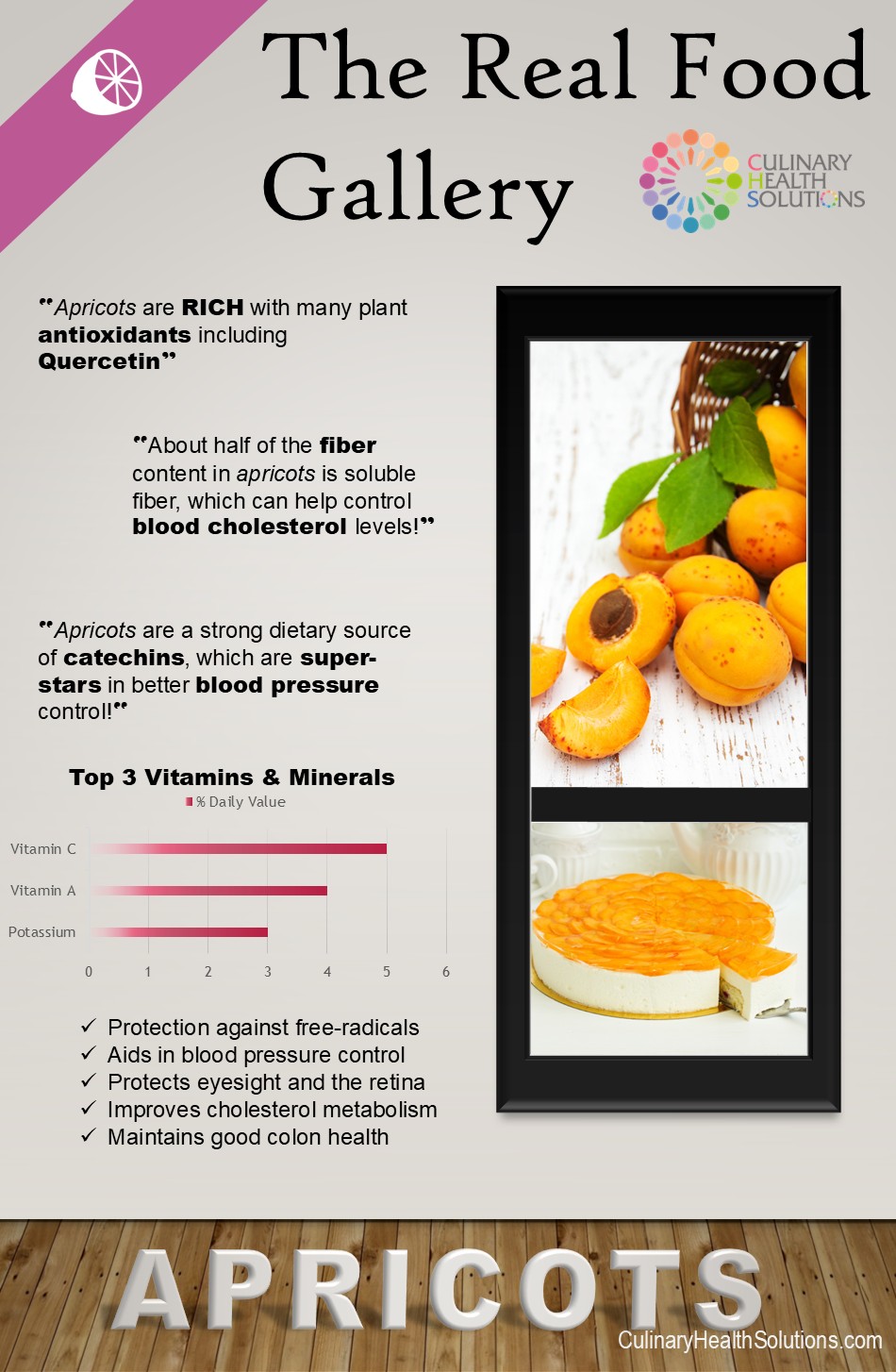Apricots

Apricots are those beautifully orange colored fruits full of beta carotene and fiber that are one of the first signs of summer. Although dried and canned apricots are available year round, fresh apricots with a plentiful supply of vitamin C and are in season in North America from May through August. Any fresh fruit you see during the winter months have been imported from either South America or New Zealand. Relatives to peaches, apricots are small, golden orange fruits, with velvety skin and flesh, not too juicy but definitely smooth and sweet. Some describe their flavor as almost musky, with a faint tartness that lies somewhere between a peach and a plum.
Apricots are rich in many plant antioxidants. Some of these are the vitamin antioxidants so familiar to regular users of this site. Others are more difficult to obtain from other foods, and may be responsible for specific health benefits. Overall, consider the apricot to be a great food that provides you with the protective effects of antioxidants while adding very few calories to your daily total.
Antioxidants are responsible for some of the specific effects listed below, but those only scratch the surface of the potential health benefits of diets rich in these important nutrients. Here are a few of the important antioxidant nutrients or nutrient groups found in apricots:
- Quercetin
- Proanthocyanidins
- Catechins
- Epicatechins
- Hydroxycinnamics
- Gallic acid
- Caffeic acid
- Coumaric acid
- Ferulic acid
Apricots are a strong dietary source of catechins, a broad family of flavonoid phytonutrients (you may be familiar with these phytonutrients since they are often cited for the benefits provided by green tea). A single apricot will provide you with 45 grams from catechins. These phytonutrients are potent anti-inflammatory nutrients and researchers have looked extensively at their health effects. Researchers have discovered that catechins can inhibit the activity of an enzyme called cyclooxygenase2 (COX2), one of the critical steps in the process of inflammation.
Much of this research on catechin benefits involves animal rather than human studies. But we have seen human research where diets rich in catechins—not specifically from apricots but from other catechin-rich foods like tea or cocoa—have led to significant beneficial changes. For instance, multiple studies have shown that catechin-rich foods can protect blood vessels from inflammationrelated damage, leading to better blood pressure control.
Apricots are a good source of dietary fiber. This overall fiber content should be helpful for most people in supporting digestive health. Within the total dietary fiber provided by apricots, about half consists of soluble fiber. Soluble fiber is one type of fiber that can help to control blood cholesterol levels.
